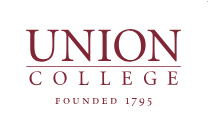Copyright and Course Materials
Tips for navigating copyright and course materials:
- Use course materials that don't come with copyright issues. See this guide created by Virginia Commonwealth University on Open educational resources (OER). OERs are licensed in a way that permits you to share them with students without restriction, and in many cases, you can edit and tailor the resources to fit your course.
- When possible, link to a resource rather than making a copy. However, don't link to things that you know are illegally made copies. This is also true for library resources. Some publishers have terms and conditions that are more restrictive than others, so it's best across the board to link to library resources rather than downloading and sharing copies.
Fair Use for Teaching
You may be familiar with a copyright "rule" that says sharing one chapter of a book or 10% of a work is not infringement. However, this is not a true rule you can rely on. It is not recognized by courts, and it not a substitute for a fair use analysis, which must always be done on a case-by-case basis.
To share copies of copyrighted works in the classroom or online (like through Nexus), it is best practice to perform a fair use analysis and keep a copy of your analysis (like a fair use checklist) on hand.
The University of Georgia System has developed a fair use checklist that applies well to teaching and course materials. This checklist can be used to assist you as you determine whether or not your proposed use falls under fair use.
Face-to-Face Instruction Exceptions
Face-to-face instruction exceptions (17 U.S. Code § 110(1)) permit the performance and display of copyrighted works without permission or payment when all of the following requirements are met:
- The instruction must occur in a place dedicated to instruction where the teaching and learning takes place at the same time (such as a classroom).
- The instruction must occur at a non-profit educational institution.
- All materials used for performance or display must be legally acquired. These materials include works such as music, text, images, and video.
This exception does not, however, apply to making or distributing copies of copyrighted works. When making or distributing copies, instructors must rely on fair use or seek permission from copyright holders.
Virtual Instruction Exceptions
Virtual instruction is when a course is taught entirely online or when components of a face-to-face course are taught online (such as with Nexus) and may include digitally transmitting class materials to students. Transmitting performances or displays of copyrighted works may be authorized under the TEACH Act (17 U.S. Code § 110(1)), which was enacted to allow comparable instruction in the online environment as to what takes place in a traditional classroom or face-to-face instruction.
The TEACH Act does not apply to materials shared online for supplementary reading, viewing, or listening. Instructors will need to rely on fair use for decisions about these materials.
Please see this guide from Purdue University that explains the numerous requirements for teaching, technology, and course materials that instructors must meet to qualify for the TEACH Act exceptions.
Digital Millennium Copyright Act (DMCA)
Digital Millennium Copyright Act of 1998 amended U.S. copyright law to address the relationship between copyright and the internet. Section 1201 prohibits circumventing technological protection measures (TPMs) used by copyright owners to control access to their works. This includes digitizing a DVD. Even though the use of the film may be considered fair use, it is illegal to digitize it and place it on Panopto. Faculty may create clips using short portions of the film under section 201.40 Exemptions to prohibition against circumvention. Need help creating clips in Panopto? Submit a support request to Learning Design & Digital Innovation (LDDI)
Schaffer Library subscribes to many film and music streaming services. See this libguide: Films at Schaffer Library.
To comply with the Digital Millennium Copyright Act of 1998, the Schaffer Library is taking a phased approach for the Winter and Spring 2024 terms. Schaffer Library will make every effort to find an institutional license on a streaming platform, e.g. Kanopy, Swank, etc. In cases where the film is only available on DVD, Schaffer Library will digitize the film. Beginning Fall 2024, Schaffer Library will no longer digitize a film from a DVD or allow use of links to digitized films in Panopto.
Course Packs
Course Packs:
Always provide attribution for the works used in your course pack - including when the work is your own.
Consult the fair use check list before using copyrighted materials.
Obtain permission from the rights holder before using their work.

